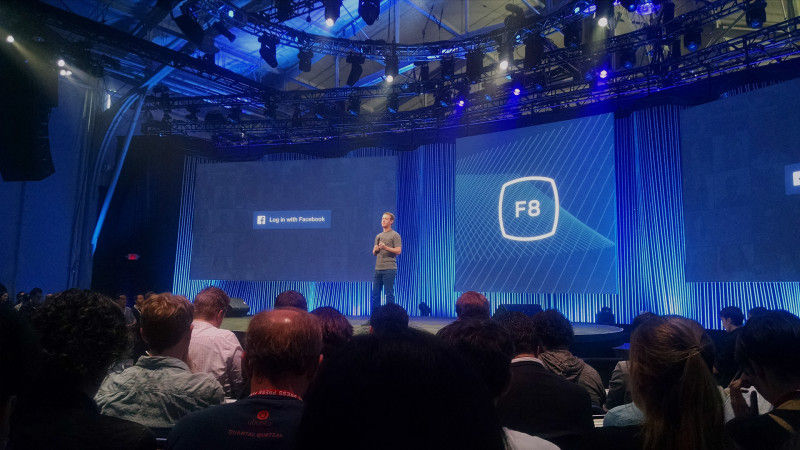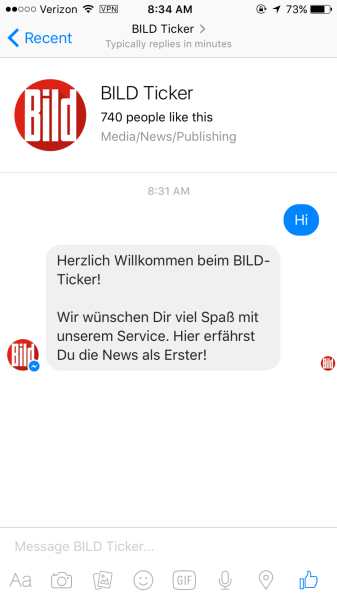Facebook Plans To Open Messenger To Publishers At F8 In April
- Fahad H

- Mar 3, 2016
- 3 min read

Mobile messaging apps are usurping social networks as the shiny new platform through which publishers can distribute their content. Now, Facebook is looking to join the fray with its own uber-popular messaging app.
Facebook Messenger will soon let publishers distribute their content automatically through the social network’s messaging service, according to three people familiar with the company’s plans. Facebook plans to announce the move with a number of participating publishers in April at its annual developer conference, F8, the people said.
A Facebook spokeswoman declined to comment.
At last year’s F8, Facebook announced that it was expanding Messenger beyond a chat app to become a platform unto itself, similar to the one its parent company’s social network has become. At the time, that meant opening up to apps like Giphy so that people could send GIFs from that app through Messenger and businesses could use Messenger as a new customer service channel.
Earlier this year, TechCrunch reported that Facebook had begun testing a tool for other developers to build chat bots that plug into Messenger so that people could do things like request an Uber through a conversation thread in Messenger. Tech firm Imperson used the tool to build a Miss Piggy chat bot for ABC’s “The Muppets” so that people could converse with the fictional character, whose replies were informed by computer algorithms that analyzed what someone said to the bot and picked out the most relevant response from a predefined list.
German newspaper Bild appears to have been the first publisher to use the still-private tool to distribute articles through Messenger when it began doing so in January, according to NiemanLab. A spokeswoman for Bild’s parent company, Axel Springer, did not respond to a request for comment.

Bild’s use of Messenger appears to be an early example of what more publishers will be able to do on Messenger when Facebook officially opens up the service. After people started a conversation in Messenger with BILD Ticker — which only communicated in German — the publisher’s chat bot would send them messages briefly describing a news story with a link to Bild’s site to check out the full article, according to a screenshot included in NiemanLab’s report. Marketing Land tried to replicate the experience this week but only received an automated welcome message followed by a message asking if Marketing Land wanted to subscribe to the news ticker.
The Notify app that Facebook rolled out last fall appears to offer another example of how publishers will be able to use Messenger. That app let people subscribe to receive push notifications from various publishers including The New York Times, Mashable, Vice, Fox Sports and People. People could click on the alerts that would appear in their smartphone’s notifications tab, which would open the corresponding article in an in-app browser.
It’s unclear how publishers might make money from the content they post to Messenger. According to TechCrunch, Facebook is planning to let businesses pay to message people who have already started conversations with them on Messenger, so it’s possible that publishers could use that to sell brands on sponsored messages the publishers would distribute through Messenger. But none of the people Marketing Land spoke with were aware of any revenue-generating plans for publishers within Messenger.
While Messenger would be a new distribution platform for publishers, it’s not the only one in the messaging app space. For example, The Washington Post, BuzzFeed and NBC News have tried out Kik.
“We experimented with Kik, and it was a great way to test out bot experiences,” said The Washington Post’s director of audience, development and engagement in an emailed statement. “The response from readers was great, and we learned about how to structure storytelling in a way that invites readers to take control of what they want to learn and see.”
In addition to The Washington Post and Kik, The Economist is on Line. The Huffington Post is on Viber. And BBC News is also on Viber, as well as Facebook’s other messaging service, WhatsApp.
But when it comes to the US audience, no messaging app is bigger than Facebook Messenger, which Facebook claimed last month is used by more than 800 million worldwide each month. According to App Annie — excluding pre-installed messaging apps like Messages on iOS and Hangouts on Android — last year, Messenger nabbed more monthly active users in the US on average than any other messaging app on either Android or iOS.




Comments